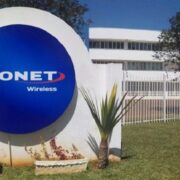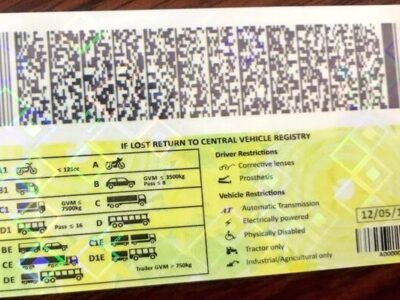The government has fuelled up efforts to wrap up the Telecel Zimbabwe after US$21 million of the US$40 million purchase price has been wired to VimpelCom International Services, the Netherlands based telecoms operator.
However despite the government making such a bold step, #MondayBlues has it on good authority that the ownership battle between the two state custodians Zarnet and the National Social Security Authority (NSSA) is very far from over.
By Bee Sting
Remember, the structure of the deal was that NSSA will takeover the transferable debt from Zarnet because of its reputable financial muscle. NSSA became the official correspondent over the settlement of the deal where the 30th of September 2016 was set as the deadline to wrap up all formalities. However, that date went on to pass without the deal sealed causing in-house legacy wars to erupt between the two state entities.
Zarnet as the Government-owned Internet Service Provider initially entered into an agreement to buy VimpelCom’s 60 percent stake in Telecel Zimbabwe, while NSSA was roped in to fund the transaction. The Empowerment Consortium, a grouping of local investors including the likes of James Makamba, holds the remaining 40 percent shareholding.
Delays in concluding the deal have mainly been caused by difficulties in remitting funds to The Netherlands owing to the liquidity crunch that is affecting Zimbabwe’s financial market. However, NSSA is arguing that it is entitled to the shareholding in Telecel Zimbabwe because it financed the acquisition.
When the deal was initially proposed, The NSSA Chairman Mr Robin Vela said he had already denied taking a position of a money lender to Zarnet, pitting differences of transparency and suppressed investment opportunities on the side of the National Social Security Authority.
Zarnet board Chair Mr Casper Chigwedere confirmed that about US$5 million was transferred to VimpelCom last month with the assistance of the Reserve Bank of Zimbabwe, and an “agreement” was in place for the balance.
“To all intents and purposes, we intend to complete this soon; I am talking about very soon. In the last 30 days, some US$5 million has already gone with the assistance of the central bank and (for) the balance we have an agreement to its treatment which I cannot actually disclose at this stage, but if we were going to meet again in a week’s time the situation could be very different, that is why I am saying very soon. So far we have remitted US$21 million, which is more than half (of the total transaction),” said Mr Chigwedere.
NSSA is providing US$30 million of the sum. However, NSSA does not want to merely finance the deal but also gunning for a controlling shareholding stake in Telecel.
NSSA Board Chair Mr Robin Vela relayed contractual obligations of the deal saying that it was clearly stated in a transfer of rights and interest agreement signed between NSSA and Zarnet.
“Both Zarnet and its legal adviser, the Attorney-General, have committed to honouring the Agreement in writing to NSSA,” said Mr Vela recently. However, Mr Chigwedere said the agreement of sale had Zarnet as the legitimate owners of the Telecel shares.
“From our view point, it’s actually straight forward: the agreement is between Zarnet and VimpelCom. I am sure you are aware that the initial US$10 million was paid directly by Zarnet and there was the funding arrangement of the US$30 million, and that is a separate agreement between Zarnet and NSSA,” said Mr Chigwedere.
Both NSSA and Zarnet said there was a buy-back agreement in which within 60 days of the conclusion of the deal, NSSA could buy Telecel Zimbabwe’s US$98 million debt owed VimpelCom at a US$45 million discount.
The purchased shares will be subsequently released to Zarnet. In addition, NSSA, will advance a further US$15 million to Zarnet for the discounted debt. But the US$15 million balance will be settled by NSSA upon receipt of the share certificate.
Mr Chigwedere said they “don’t envisage” that NSSA would “at any point” take control of Telecel because as soon as Zarnet received the shares, it would also get that debt and pass it on, and thus recover the shares.
“So that is the transaction; I know it has been misunderstood, misrepresented, but that is the correct position. If you look at Attorney-General’s correspondences – I have also seen some of them in the Press; I don’t know how they got there – the undertakings, (and) commitments that were being requested by NSSA were all premature because the transaction has not been concluded.
“As soon as the transaction is concluded, and if we don’t actually deliver the debt within 60 days, they can actually make the claims they are making. But they have been presumptuous, for whatever reason; unnecessarily so when it is articulated very clearly that what you are claiming is not yet due. And that is why they are quiet because it’s not yet due,” explained Mr Chigwedere.
It is understood that Zarnet will not take control of the company if it fails to deliver the debt because NSSA will remain with the shares. Telecel, the first mobile telecommunications company to be licenced in Zimbabwe, started operating in 1996.
So as it stands, #MondayBlues can assure you that as long as the government delays in effecting counter measures to financially equip Zarnet in taking over the Telecel deal, we are likely to see a very nasty court battle between these two state entities as they continue to tussle for a controlling stake in the ailing mobile operator.












Comments